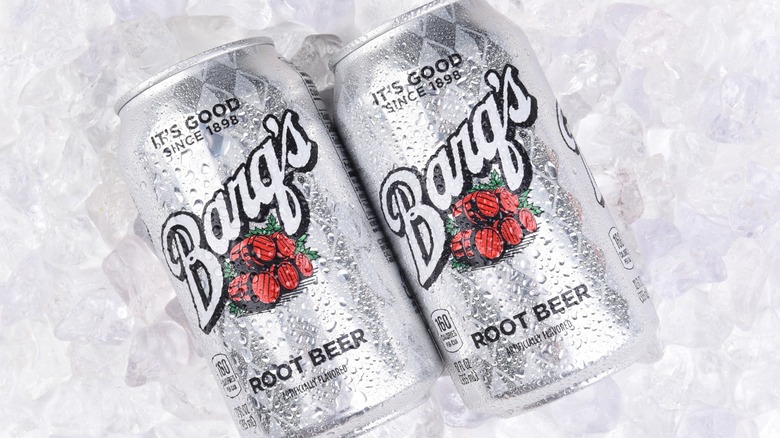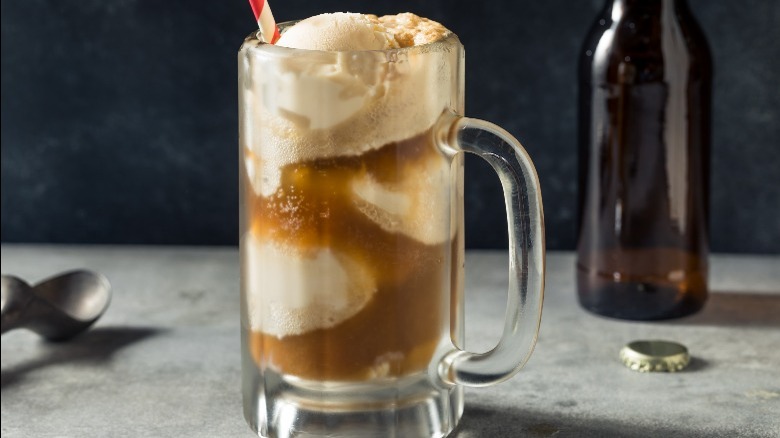Is Root Beer Gluten-Free?
If you're a root beer fan and believe you're in a small minority, think again. In 2021, the root beer market worldwide was estimated at over $728 million, according to Grand View Research. Root beer's rise is partly due to the increased demand for low-alcohol beverages and the drink's popularity among millennials. And root beer consumption doesn't look like it will be leveling off anytime soon. Researchers forecast the root beer market will experience a compounded annual growth rate (CAGR) of over 4% between 2022 and 2030. That's a lot of root beer floats.
While today we pair a root beer with a burger or slurp it with a scoop of vanilla ice cream, the "roots" of root beer originated hundreds of years ago in the Americas when indigenous people used native sassafras (a tree) and sarsaparilla (a vine) — the primary ingredients of modern-day root beer — for their medicinal benefits and culinary properties, according to the American Homebrewers Association (AHA).
After the Europeans arrived in North America and "discovered" these ingredients, they shipped them back home where Europeans began to incorporate them into their culinary culture. Though Europeans and American colonists were beginning to drink early forms of low-alcoholic fermented root beer in lieu of risking consuming tainted water supplies, the root beer drink as we know it today took off in the late 19th century when pharmacist Charles Hines is believed to have invented the first recipe for the "cure-all" drink, dubbing it "root beer," per AHA.
Is it safe to drink root beer if you are gluten intolerant?
Gluten is a type of protein found in wheat and other types of grains that can cause those who are gluten intolerant to feel bloated, tired, or nauseous, according to the experts at Cleveland Clinic. Some people may also have celiac disease, a genetic condition in which their body has an autoimmune response to gluten leading to inflammation and damage in their digestive tract.
Whether you experience one of these conditions or simply prefer not to consume gluten, if you are a root beer lover, you're in luck.
Commercially sold soft drinks are largely considered safe and that includes root beer, according to the experts at Celiac.com. Nonetheless, they advise that you always check the ingredients to make sure that the root beer doesn't contain any malt-based ingredients, such as malt flavoring, syrup, or extract.
However, the experts at Healthline state that generic or store-brand soft drinks and brands that were manufactured outside North America could contain gluten, so you should stick with the major commercial brands. To make sure you are not consuming root beer that may potentially contain gluten, check that the product is gluten-free certified. If it is not clear on the packaging, the experts at Healthline suggest that you contact the manufacturer to ensure the root beer is gluten-free. Even if your favorite root beer is gluten-free, it's not a healthy beverage, so experts suggest alternatives, such as flavored water, club soda, unsweetened iced tea, or a fizzy kombucha as a healthier way to stay hydrated.


